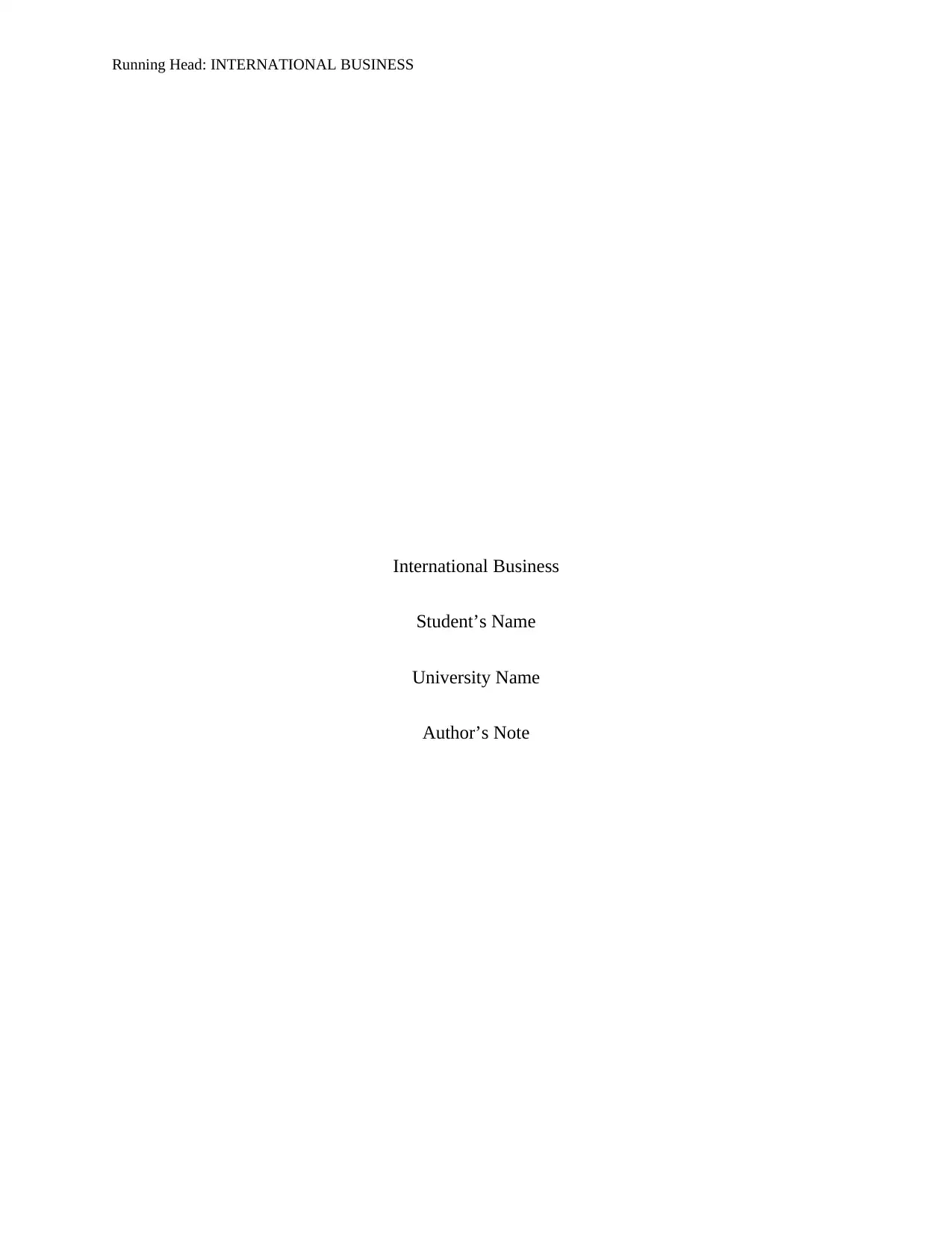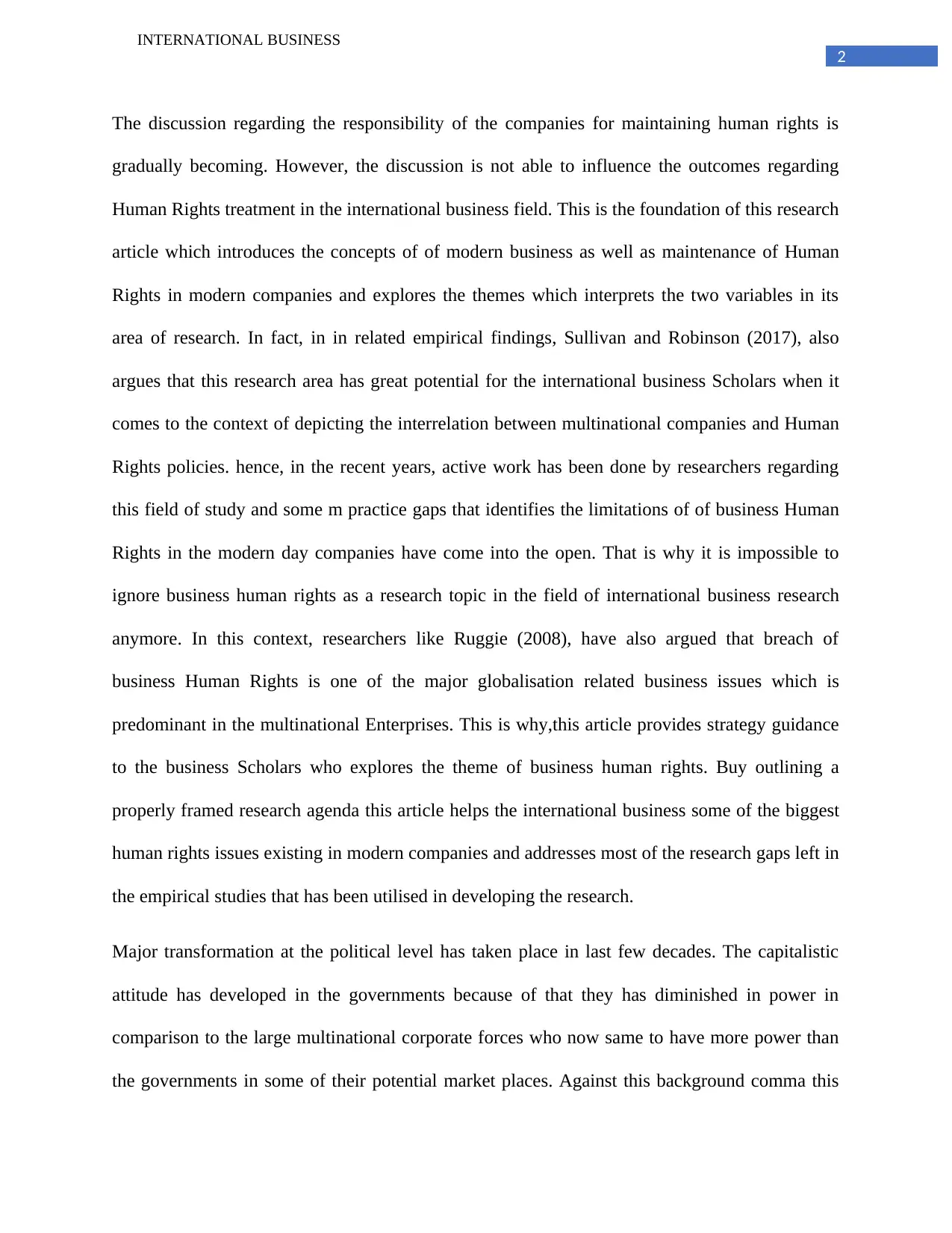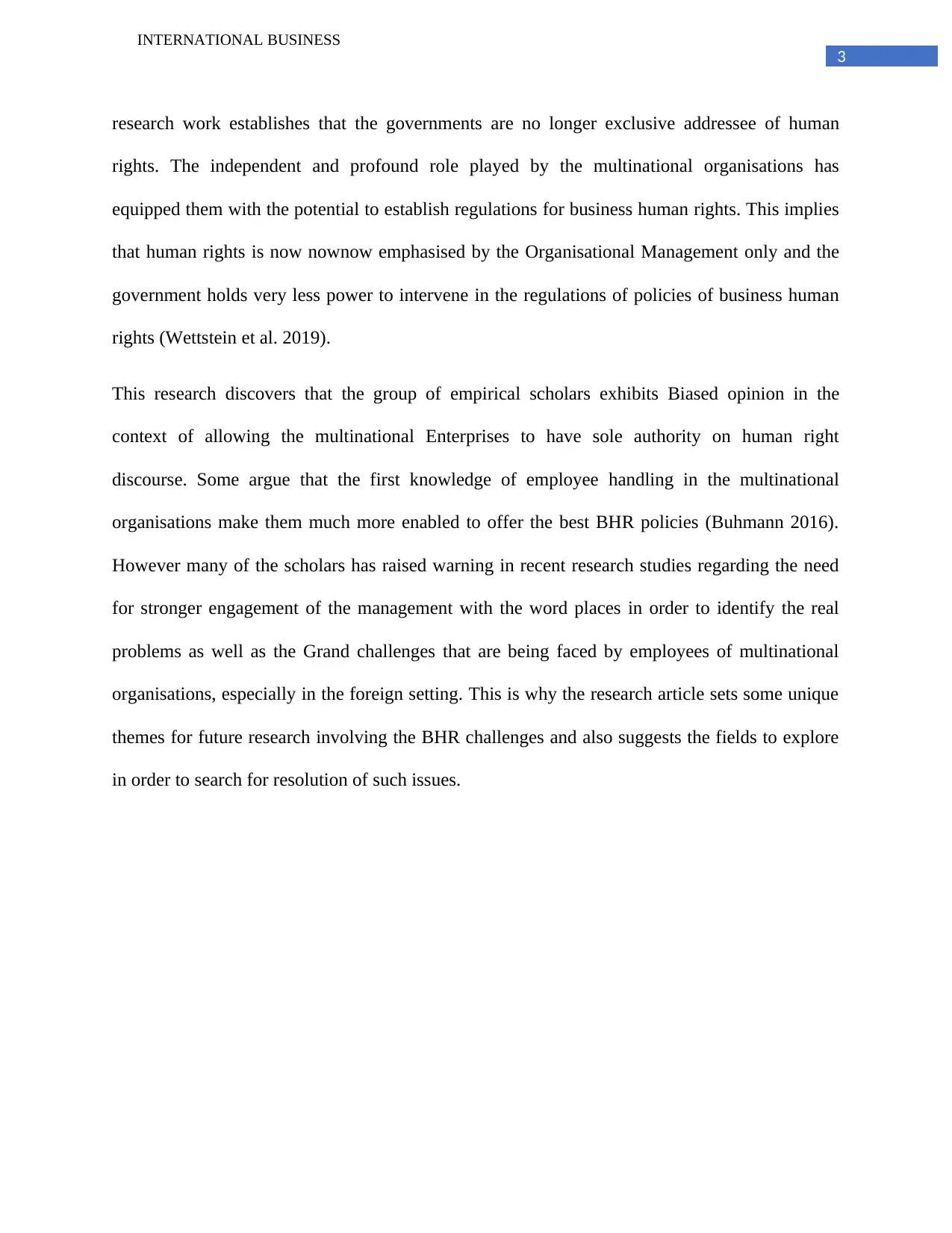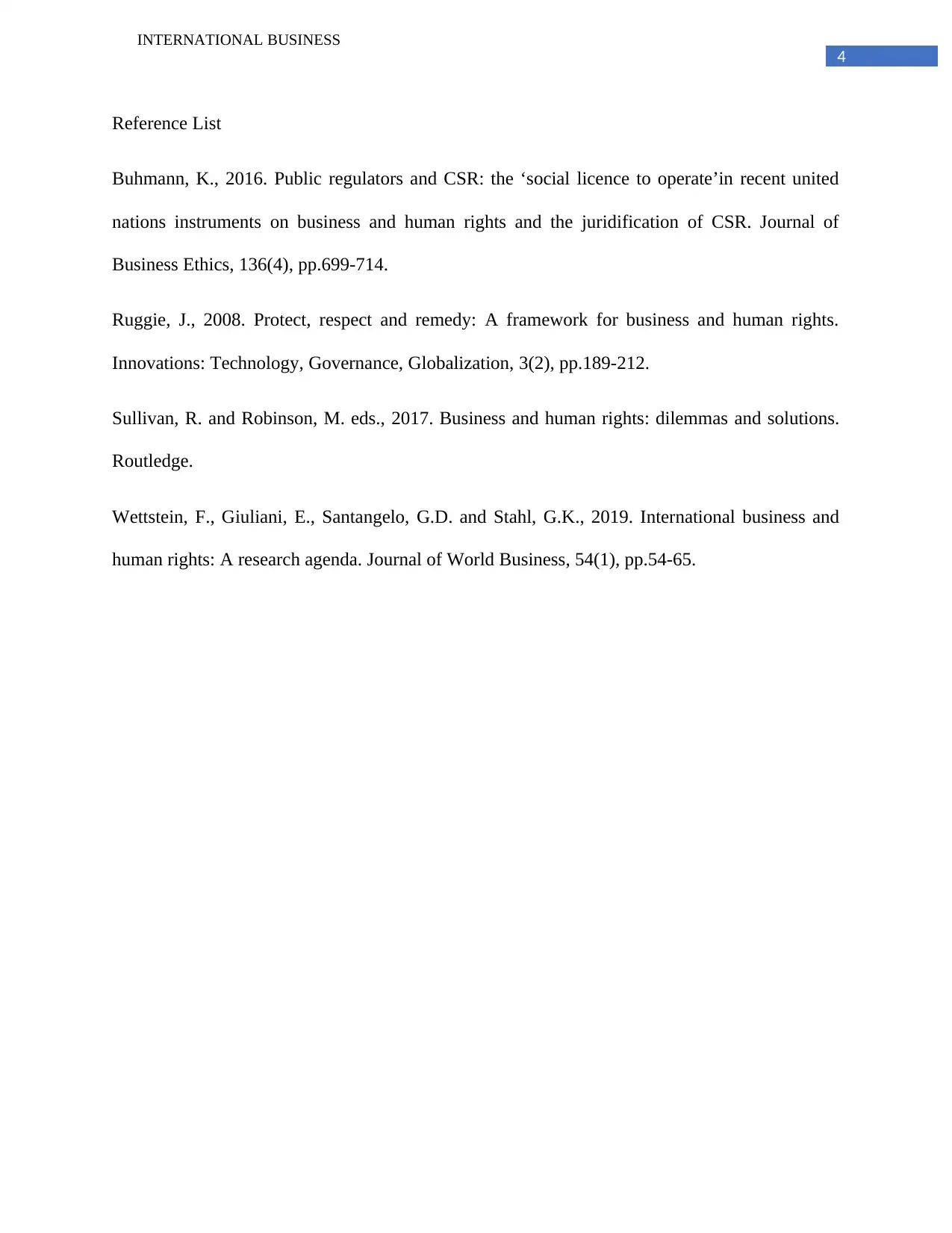International Business and Human Rights: A Research Agenda Review
VerifiedAdded on 2023/01/16
|4
|754
|91
Literature Review
AI Summary
This literature review examines the research article "International business and human rights: A research agenda" by Wettstein, Giuliani, Santangelo, and Stahl (2019), which introduces Business and Human Rights (BHR) as a crucial research area for International Business (IB) scholars. The review highlights the growing importance of BHR in the context of globalization and multinational enterprises (MNEs). It discusses the authors' arguments regarding the need for IB to address human rights issues, emphasizing the potential of IB scholarship to understand the relationship between MNEs and human rights. The review also addresses the authors' call for a research agenda, identifying gaps in current empirical studies and the need for further investigation into the roles of governments and organizations in establishing regulations for business human rights. It further explores how empirical scholars have biased opinions in the context of allowing the multinational Enterprises to have sole authority on human right discourse. The review also presents the major transformations at the political level that have taken place in last few decades and also suggests the fields to explore in order to search for resolution of such issues.
1 out of 4











![[object Object]](/_next/static/media/star-bottom.7253800d.svg)